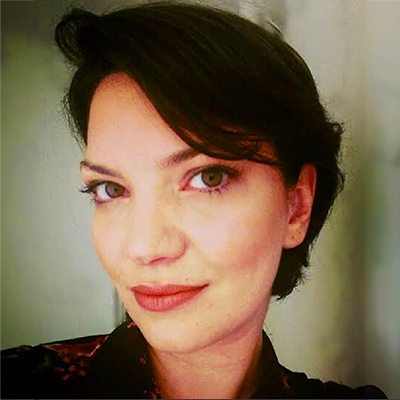Centre For European Studies
March 27, 2024 2024-05-03 12:37Centre For European Studies
Research Centres

-
INTRODUCTION
-
TEAM
-
RESEARCH INTERESTS
-
STUDENTS’ CORNER
-
CONTACT US
-
Past Activities Under Dr. Rohee Das Gupta
The key objective of CES, under the leadership of Dr. Raffaela Puggioni, is to promote and enhance knowledge on the European societies. This will be done by organising seminars, discussion groups and public lectures on the following themes: citizenship, identity, inclusion, subjectivity, mobility, governmentality, activism, humanitarianism and border politics.
The Centre aims at investigating those thematic issues through an interdisciplinary perspective — that combines International Relations, Political Theory, Citizenship Studies, Resistance Studies and Border Studies — but also through a perspective that does not locate the European perspective at the centre of analysis. Events, debates and research on Europe, and more specifically on European Union (EU) countries, are the starting point but not the end point. In other words, the Centre will critically investigate today Europe without loosing sight of its (colonial) past — a past that continues to shape the European identity, its border and security policies — and scrutinise how a post-colonial Europe might look like.
| Director | |
 | Raffaela Puggioni is Professor at the School of International Affairs and Executive Director of the Centre for European Studies. She has some fifteen years of teaching experience in International Studies/Political Science in countries as diverse as Italy, China, Azerbaijan and India. She has recently completed a two-year Marie-Curie Individual Fellowhip at LUISS University (Rome), where she investigated the relation between COVID-19 emergency, (im)mobility and the liberal subject. Her work is broadly situated in the disciplines of International Relations Theory, Political Theory, Resistance Studies and Border Studies, with a geographical focus on EUrope. Her work has appeared in the Journal of Refugee Studies, Political Studies, Citizenship Studies, Third World Quarterly, Global Society, Journal of Borderlands Studies, Politics and Thesis Eleven, and a monograph, Rethinking International Protection, has been published by Palgrave. |
| Deputy Director | |
 | Silvia Bottega, a political scientist with a PhD from the University of Turin, is currently serving as an Associate Professor at JSIA. Her research interests encompass regional security architectures in Africa, Asia, and Europe, as well as the impact of wars and asymmetric conflicts on women and the general population, the ethics of refugee protection in the Middle East and in Europe. She has taught a wide range of courses including Foreign Policy Analysis, Military Alliances and Defence Diplomacy, International Relations Theory, and International Public Law. She is also teaching M.A. in International Relations, Security and Strategy programme offered through Coursera. In addition to her teaching responsibilities, Dr. Bottega has also been actively involved in international collaborations, coordinating Summer and Winter Schools and contributing/leading to the establishment of Study Abroad programmes at JSIA. |
| Research coordinators | |
 | Purvi Agarwal is currently studying B.A. (HONS) Diplomacy and Foreign Policy at the Jindal School of International Affairs and is a research coordinator for the Centre of European Studies under the theme ‘Security and Responsibility. She has worked with ABP Network, Europe India Centre for Business and Industry, Jindal Global Centre for G20 and NDTV. Additionally, she is interested in multilateralism, Indian foreign policy and financial literacy. She is also proficient in Hindi and English while holding certifications in German and Japanese. |
 | Harini Vallal J, is a second-year student at JSIA pursuing a B.A. (Hons.) in Global Affairs. She has worked as an editor for CSS and CNSA and as a research intern for JGC4G20, where she co-authored a published paper. Her interest lies in EU foreign policy and its response to global security challenges. |
Research activities at CES will mostly focus on the following four thematic issues. The questions connected to those themes do not aim to be exhaustive but simply as starting points upon which to begin our critical reflections:
Mobility and immobility
What does exactly mobility refer to? What is the impact on mobility on current European societies? How to understand (irregular) cross-country mobility? Who are the subjects who are involved in mobility? Which commonalities, if any, exist with other geographical areas? In what ways do states govern through immobility? How to rethink security through mobile subjectivities? How do borders, fences and legal barriers limit mobility freedom?
Security and responsibility
How to rethink security through an ethical perspective? Does security require also responsibility toward non-nationals? And if it requires responsibility, what kind of responsibility does it require? Is responsibility, or perhaps a responsible security, nationally bounded? How to rethink security when engaging with issues of cross-mobility and international protection?
Solidarity and humanitarianism
What exactly is solidarity? Against whom shall people express their solidarity? Is solidarity region-specific? Is humanitarianism also region-specific? And if how to investigate humanitarianism outside a Eurocentric perspective? How to engage with acts of solidarity and humanitarianism in order to (re)think inclusion and diversity? How does identity shape, and challenge, inclusiveness?
Citizenship and activism
What exactly is citizenship? Is it about political engagement and participation? Or is it about possessing certain documents? If it is about documents, is activism limited to citizens only? Are non-citizens also (political) subjects with voice?
Through our eyes: this section is dedicated to short pieces, in which to reflect on commonalities and differences between India and EU countries.
New Horizons: this section aims at contributing critical, and future-oriented, comments and analyses.
Centre for European studies
School of International Affairs
Jindal Global University
Sonipat, Haryana, India
ces@jgu.edu.in
Click on the link below to see the past activities under Dr Rohee Das Gupta

